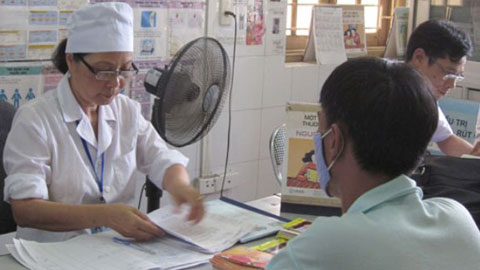
The United Nations in Vietnam calls for more effective investments in HIV/AIDS prevention and control to achieve the "three zeros" targets- zero new HIV infections, zero discrimination and zero AIDS related deaths.
The United Nations in Vietnam calls for more effective investments in HIV/AIDS prevention and control to achieve the “three zeros” targets- zero new HIV infections, zero discrimination and zero AIDS related deaths.
Dr. Kristan Schoultz, UNAIDS Vietnam Country Director, noted the achievements of Vietnam’s strategies for HIV/AIDS prevention and control but also highlighted the huge challenges the country is yet to overcome.
Vietnam needs to distribute valuable resources in order to implement the national target programmes in the most effective and efficient way, she added.
 |
Recently Vietnam has expanded the HIV drug resistance program and been successful in reducing the incidence of new infections. However, the number of HIV infections in high risk groups in many provinces remains at an alarmingly high rate.
By the end of 2012, the number of male drug users in Vietnam stood at 11 percent and more than half of those are HIV infected people in major cities.
The national average number of HIV infections among female prostitutes was estimated at 27 per cent.
New evidence suggests that the number of HIV infections in homosexual men is on the increase and this demographic is predicted to rise significantly among the numbers of HIV infected people in Vietnam.
The country is currently seeking new approaches to engage needy people with HIV services and new initiatives have been set up to encourage earlier HIV diagnosis and initial treatment.
The UN encourages Vietnam to expand such initiatives to maximize the efficiency of resources for HIV/AIDS prevention in the context of diminishing foreign aid.
Dr Takeshi Kasai from the World Health Organization (WHO) in Vietnam says the national response to HIV is at a crucial transitional stage, requiring the country to broaden new ideas, approaches and innovations to improve HIV/AIDS prevention and control interventions.
By intensifying early diagnosis and HIV drug resistance programmes, the country’s new infection rates and AIDS related deaths will be further reduced.
(Source:VOV)




